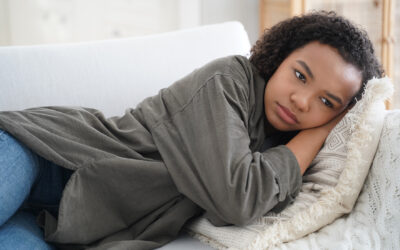Every healthy adult should get at least about seven hours of sleep per night. That’s the typical amount of rest adults need to stay happy and healthy. Children and teenagers often require more than seven hours of sleep to be healthy. In fact, it’s generally recommended that teens get anywhere around eight to 10 hours of sleep each night. Interestingly, so few get the sleep that they need. In fact, teenagers often experience sleep deprivation.
What are the symptoms of sleep deprivation?
There are many symptoms that can manifest when a person becomes sleep deprived. Each of the following can contribute to poor mental health or exacerbate preexisting conditions:
- Excessive sleepiness in the daytime — Someone who’s sleep deprived might frequently doze off during the day. They may start to fall asleep during work, at school, and even while driving, which can quickly become very dangerous.
- Slowed thinking — It’s common for a person who hasn’t gotten enough sleep to experience slowed thinking. It may be harder for them to think on their feet or make decisions as quickly as they might normally. This slowed thinking can also impair their ability to make decisions.
- Poor memory — Some people experience symptoms of poor memory when they’re sleep deprived. This might look like forgetting important events or certain details that they would typically remember had they gotten the right amount of sleep.
- Poor focus — Someone who doesn’t have restful or efficient sleep might have trouble focusing on daily tasks, schoolwork or job activities. Sleep deprivation can lead a person to leave tasks incomplete or perform them unsatisfactorily.
- Reduced energy — Many people who don’t get enough sleep will lack the energy they need throughout the day. They may feel sluggish and tired or as if they don’t have enough energy to perform their usual tasks.
- Increased stress or anxiety — A common symptom associated with sleep deprivation is being overly stressed or anxious. Someone who hasn’t gotten enough hours of good sleep at night might become irritable or stressed the next day.
What are some of the most common causes of sleep deprivation in teens?
There are so many causes of sleep deprivation in teenagers. Many teens have busy schedules. They often juggle classes, after-school extracurricular activities like sports or clubs, social lives, part-time jobs, and more. A teenager’s schedule often doesn’t leave much time for restful sleep. Not only that, but they have to spend hours each day doing homework after school each day and studying for tests or quizzes. Teenagers also release the sleep hormone, called melatonin, later at night than adults do because of changes in their hormones during puberty. It’s also common for young adults to not get proper sleep as a result of varying mental health disorders. Those dealing with depression and anxiety are more likely to experience unusual sleep habits including sleep deprivation.
How can sleep deprivation negatively affect teens?
Sleep deprivation can leave teens feeling less than their best. It can cause irritability, anxiousness, moodiness and more. Not getting the right amount of sleep each night has the potential to impair a student’s academic performance and their interest in extracurriculars, and it can even cause them to isolate themselves from their social circles.
As mentioned earlier, overall it’s a good idea for teens to get around eight to 10 hours of sleep each night if possible. This way, they can maintain healthy and happy lives. Teens who get enough sleep every night are better able to manage their mental health, which can significantly improve their quality of life.
Lightfully can help teens improve their mental health
Our mission at Lightfully is to provide high-quality mental health care to various types of clients through a focused approach to process-based therapy. The framework of our clinic consists of evidence-based, clearly defined, data-driven and whole-person-centered care. We have extensive experience working with clients of all ages, and we’re confident that we can help teens like you who are struggling with the symptoms of sleep deprivation.
Lightfully offers various levels of care to both adults and teens: Residential Treatment, Intensive Outpatient Program (IOP), and Partial Hospitalization Program (PHP), also referred to as our Day Treatment Program. We also offer a Virtual Intensive Outpatient Program (vIOP) for adults. If you’re experiencing sleep deprivation that’s affecting your mental health, let us help.
Change is possible. When you’re ready to take the first step, reach out to our Admissions Concierge Team. We’ll take the next steps together, toward the fullest, brightest version of you.





